 Petzlover
Petzlover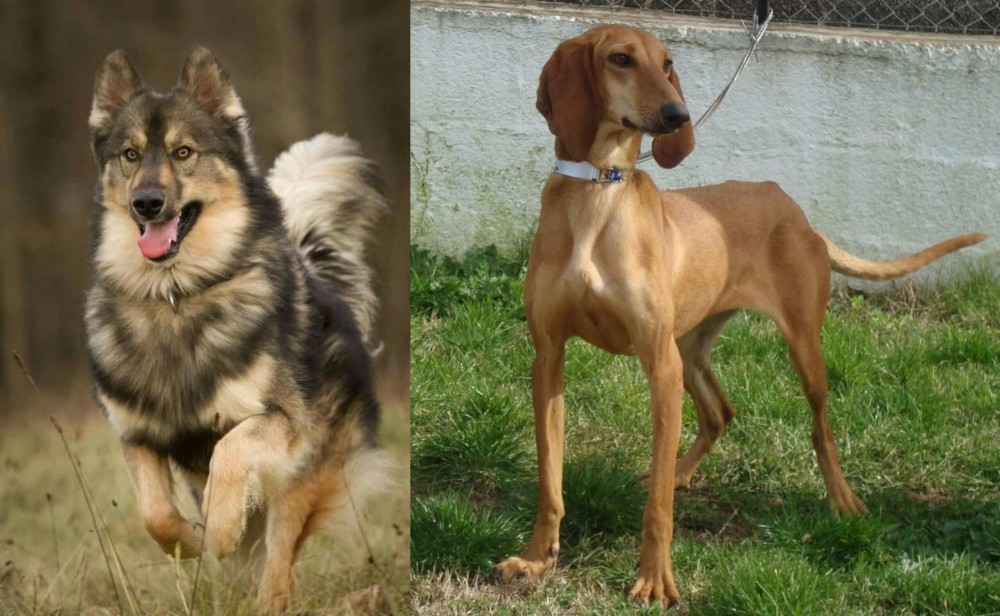 Native American Indian Dog is originated from United States but Segugio Italiano is originated from Italy. Native American Indian Dog may grow 42 cm / 16 inches shorter than Segugio Italiano. Native American Indian Dog may weigh 93 kg / 206 pounds more than Segugio Italiano. Native American Indian Dog may live 5 years more than Segugio Italiano. Native American Indian Dog may have more litter size than Segugio Italiano. Native American Indian Dog requires High Maintenance. But Segugio Italiano requires Low Maintenance
Native American Indian Dog is originated from United States but Segugio Italiano is originated from Italy. Native American Indian Dog may grow 42 cm / 16 inches shorter than Segugio Italiano. Native American Indian Dog may weigh 93 kg / 206 pounds more than Segugio Italiano. Native American Indian Dog may live 5 years more than Segugio Italiano. Native American Indian Dog may have more litter size than Segugio Italiano. Native American Indian Dog requires High Maintenance. But Segugio Italiano requires Low Maintenance
 The Native American Indian Dog is an ancient breed, that some consider to be feral. It is a landrace breed that developed with the indigenous peoples North America. These dogs originally looked and sounded like wolves and it is likely that their ancestry is tied to wolves crossed with pre-Columbian American dogs that came to the America’s with the first peoples. There are some that believe the Native American Indian Dog is a connecting line back to the dogs or wolves that over 12,000 years ago were the first to be domesticated by human beings.
The Native American Indian Dog is an ancient breed, that some consider to be feral. It is a landrace breed that developed with the indigenous peoples North America. These dogs originally looked and sounded like wolves and it is likely that their ancestry is tied to wolves crossed with pre-Columbian American dogs that came to the America’s with the first peoples. There are some that believe the Native American Indian Dog is a connecting line back to the dogs or wolves that over 12,000 years ago were the first to be domesticated by human beings.
They are now a rare breed in the wild and a small group of domesticated dogs. Fossil studies in recent years suggests that the Native American Indian Dogs came to North America about 4500 years after the first indigenous peoples. It is believed that the Native Americans bred the dogs that traders and explorers brought with them to the native coyote as well. This created a breed specific to North America and called the Common Native Dog or the Common Indian Dog. The original NAID was a mix of many different breeds of dogs and wild canines.
Today’s NAID is said to be raised on Indian reservations in the United State and represent a mix of Chinook, Husky, German Shepherd Dog and Malamute, along with perhaps some of today’s wolf mixed in. This dog is raised domestically and is socialized to life with humans. They are the last remaining breed from all the Native North American dogs that lived with the original people of the Americas. They are also thought to have an ancestry similar to the Australian Dingo.
They are a devoted, protective and loyal breed though they tend to be shy. They need to be outside for the majority of the day and don’t do well in crates. They need a fenced yard and room to roam. They are working dogs that hunted, pulled sleds and guarded their homes. They still need a job to so.
Today the North American Indian Dog is being bred to replicate the temperament and appearance of the originals. Although there are many breeders working from the founding breeder with original stock, there are only six that are officially given authorization to breed the NAID. They are registered by Terra Pines with the National Kennel Club but not recognized by the AKC and UKC.
The breed name NAID is trademarked by Karen Markel of Majestic View Kennels in the 1990’s. Today the breed is nationally recognized as a breed very much like the original Native American dogs, The breed is intelligent and quite healthy. They enjoy people and engage in many companion activities.
Whatever its true ancestry the current Native American Indian Dog (NAID), today’s version is not recognized by the AKC, but they are recognized by the Dog Registry of America, the Native American Indian Dog Registry and the National Kennel Club.
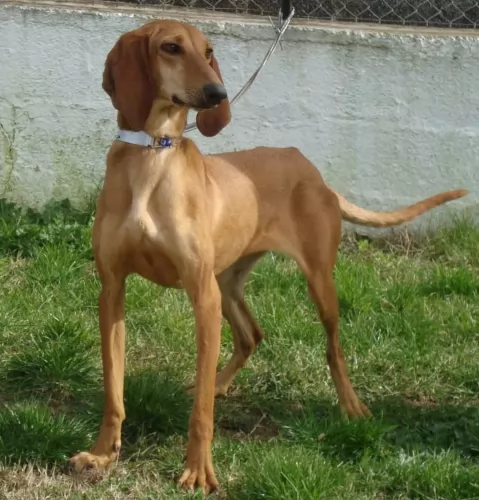 Known also as the Segit, the Segugio Italiano is an ancient dog breed believed to have descended from Egyptian hounds.
Known also as the Segit, the Segugio Italiano is an ancient dog breed believed to have descended from Egyptian hounds.
Both males and females stand at between 48 and 58cm and they weight between between 18 and 28kg. It’s a medium to large sized dog. The dog is a scenthound and was at first used for wild boar hunting in ancient times. Once wild boar numbers become much less, the Segit itself dropped in numbers, and it faced extinction.
Dedicated houndsmen worked hard to restore the numbers and the dog was successfully bred. It is a popular dog in Italy today. The Segugio Italiano isn’t recognized by the American Kennel Club whereas the Kennel Club in the UK recognizes it in the Hound Group.
 There are two sizes of the North American Indian Dog – they are medium and large. They have dense short double coats, or they have long top coats and a fairly dense undercoat. They come in a variety of colors mostly black or silver but there is also a tortoiseshell. These tortoiseshell colored dogs are considered by Native Americans to be sacred beings. These tortoiseshell dogs are strikingly good looking and are called Spirit Dog.
There are two sizes of the North American Indian Dog – they are medium and large. They have dense short double coats, or they have long top coats and a fairly dense undercoat. They come in a variety of colors mostly black or silver but there is also a tortoiseshell. These tortoiseshell colored dogs are considered by Native Americans to be sacred beings. These tortoiseshell dogs are strikingly good looking and are called Spirit Dog.
They all have the look of a Siberian Husky or Alaskan Malamute with upright ears and almond shaped eyes that are anywhere from amber to brown with some blue. Usually their tails are down and long but can be curled. They resemble the wolf and have that wild, feral appearance. They can be as large as over one hundred pounds or average seventy to eighty pounds. They are strong, alert and intelligent. They are considered to be hypoallergenic, shedding their coat only once a year.
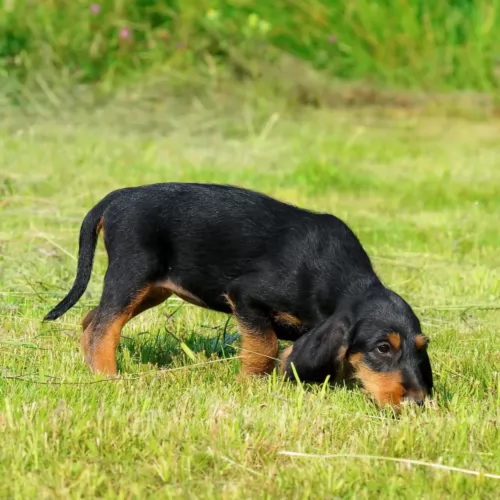 The Segugio Italiano has a distinctive look to him. He’s a large dog standing at between 68 and 76cm in height and weighing between 16 and 27 kg.
The Segugio Italiano has a distinctive look to him. He’s a large dog standing at between 68 and 76cm in height and weighing between 16 and 27 kg.
The body is lean and muscular and the Italian Scenthound has an amicable looking expression on his face. The coat of the dog is available in two types - short-haired or wire-haired.
The short-haired variety needs to be brushed on a weekly basis but is generally easy to maintain. Wire-haired dogs may require hand-stripping several times a year.
The coat of these dogs range from deep red to wheaten or black. Many dogs have white markings on the head, chest, feet, and the tip of the tail. The ears are long and floppy. If you want your dogs to have puppies, you can expect a litter size of between 4 to 6 puppies.
As a Scenthound, the Segugio Italiano is an intelligent dog, easily trained. He is best trained and socialized as he tends to be stubborn and he is also an independent strong-willed dog. It’s not an aggressive dog and yet it makes a good watchdog.
He’s adaptable but wouldn’t adjust well to living in a small space in the city.
 This breed is gentle and loving with children.
This breed is gentle and loving with children.
Endurance, strength and good health.
Low adaptability to small living spaces and lack of outside space; don’t do well in crates and need an experienced dog owner.
They are highly intelligent, love to learn and are just a little stubborn.
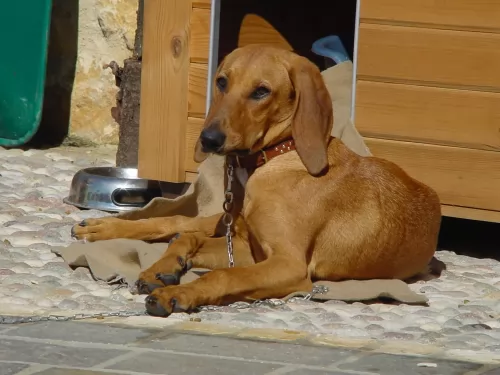 The amicable Segugio Italiano just wants to please. They get on well with children and pets. They’re easy going dogs that will require a good deal of exercise.
The amicable Segugio Italiano just wants to please. They get on well with children and pets. They’re easy going dogs that will require a good deal of exercise.
They make wonderful pets and companions, being particularly well suited to outdoor type of people. They make good watchdogs too, and with his interesting looks, his intelligence and gentle nature, you’re going to have an exceptional canine companion.
 This is a fairly healthy, long lived breed having spent so much of its history in isolation. They are prone to some of the issues that affect all medium to large breeds.
This is a fairly healthy, long lived breed having spent so much of its history in isolation. They are prone to some of the issues that affect all medium to large breeds.
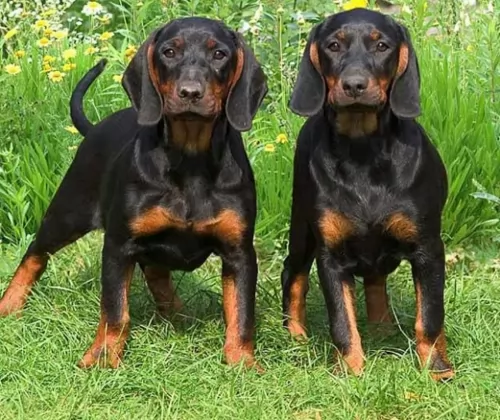 When you have a Segugio Italiano, you’re not likely to be spending much money at the vet, as these dogs are fairly healthy.
When you have a Segugio Italiano, you’re not likely to be spending much money at the vet, as these dogs are fairly healthy.
If your pet does show signs of illness, as a responsible pet owner it is your job to get him pet to the vet quickly as this can prevent other problems developing.
Dogs with such long ears can be more prone to ear infections. Your pet can be in pain and he will shake his head and paw at the infected ear. He may also be vomiting from nausea. You need to get your dog to the vet as soon as possible because with severe ear infection cases, there can even be facial nerve damage.
 Because of their propensity to grow to quickly the puppy should only stay on puppy food for 8-10 months. Feed them a high quality large dog puppy food 3-4 times daily for a total of 2-21/2 cups per day.
Because of their propensity to grow to quickly the puppy should only stay on puppy food for 8-10 months. Feed them a high quality large dog puppy food 3-4 times daily for a total of 2-21/2 cups per day.
Feed a high protein, large dog dry food twice a day for a total of two cups. Do not over feed. Do not feed right before or after exercise do to the risk of bloat.
Healthy, strong long lived dog.
This is not an indoor, couch potato dog. They need exercise and they need space. They won’t do well as apartment dogs unless you can take them to a dog park for over an hour every day. They really need a large fenced in yard. They don’t do well in crates either. He doesn’t understand crates and thinks you are punishing him. They make great hunters, search and rescue dogs, service dogs and therapy dogs. They will succeed at pulling competitions and weight competitions.
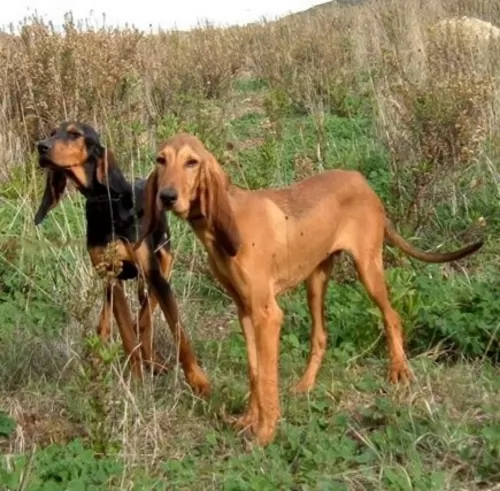 The Segugio Italiano comes with two coat types, the short-haired variety as well as the wire-haired variety. The short-haired dog will need to be brushed at least twice a week, while the wire-haired dog may require hand stripping.
The Segugio Italiano comes with two coat types, the short-haired variety as well as the wire-haired variety. The short-haired dog will need to be brushed at least twice a week, while the wire-haired dog may require hand stripping.
Segugio Italianos love a good bout of exercise, and out on the hunt they are constantly on the move. They’re known for their stamina, but once back at home, they can settle down quite calmly. Make sure this pet of yours is well exercised, whether walks, running off his leash or ball games.
Have a good look at the size of your dog, his age and energy levels before choosing dog food. When feeding your dog, don’t make it all complicated. All your dog wants is a simple, nutritious meal.
There are good commercially manufactured dog foods on the market and by reading the labeling you can ensure the best kibble for your pet. Try and give him some home made food too.
Boiled chicken, brown rice or pasta and spinach, sweet potatoes and carrots are a healthy choice for your pet – simple, tasty and nutritious. You can add a little bit of this twice a week to the dry kibble. Your dog will love it and it won’t cause any digestive problems.